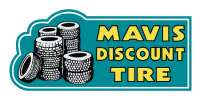
SHOP for TIRES
Get It Fixed - Common Vehicle Repairs
Understanding what typically gets a vehicle sent into a repair shop not only gives you an idea of what to prepare for later down the road, but also helps give you a leg up in preventing these problems in the first place. Here we'll go over some of the most common reasons why cars have to have a little professional attention and some of the things you can do to cut down on or prevent repairs from the start.
Brakes:
People are always having their brakes worked on and, depending on the condition of the braking system, this can be a fairly expensive job. What leads to a large bill to have your brakes taken care of usually has to do with poor maintenance. The squeaks, squeals, and grinding that brakes make often get ignored for long periods by drivers, and it's this neglect that causes more serious damage to the brake rotors. The best thing you can do in order to avoid both an accident and a much more lavish bill is to routinely have your brake pads inspected and replaced as needed.
Tires:
Tires require a little more care than a lot of us are willing to give them, but this, in turn, is going to come back to haunt us. Tires that have been ignored and which have lost all of their tread will cause more stress on the rest of the vehicle and leave your rims more exposed. In this event, when you do finally go in to have your tires changed, you may find that you're replacing rims and various other parts that have become damaged.
Regularly having your tires rotating and maintaining the required pressure in them is also extremely important for avoiding larger repair jobs. Something else that would be smart to do would be to invest in a quality brand of tires. Getting something for a cheap price is pretty sweet, but the sweetness is going to turn sour when it becomes clear that that cheap price translates to a cheap product. Talk with a reliable, professional repair service to figure out the best brand you can get for the right price.
Spark Plugs:
They may be little, but they sure do lead to some big problems. Spark plugs are connected to your vehicle's electronic control unit (ECU), which is basically the brain of your car. They're meant to fire at very precise moments and if something goes wrong that causes them to misfire, then you're in for some repairs. Repairs related to misfired spark plugs can run you a couple of hundred dollars to several thousand, depending on the damage done and to what part of the car's system.
When your spark plugs misfire, they can cause considerable damage to the engine's pistons, valves, and so on, and these are the big ticket areas. To help prevent this, be sure to pay attention to your owner's manual, as this will give you an idea about how long spark plugs last for your make and model, as well as just how they should be tuned. Make sure to have a diagnostic conducted on your vehicle on a regular basis, as this can help your mechanic pick up on smaller issues that may lead to problems with your spark plugs.
Vehicle Suspension:
Your suspension system is what helps provide you with a smooth ride, even on the bumpiest of roads. While you're not going to have to have your suspension changed out like your oil, you do need to have it checked every 15,000 miles or so. Suspension systems are just that - a system, so they contain various smaller parts that corrode on an individual basis over time. If you don't bother to have these components checked on and maintained, then you're likely to have to replace the whole system, which is going to run you a very high bill.
You can prevent whole system failure just by keeping an eye on all of the smaller parts of the system. You may find that just one or two parts have corroded or somehow become damaged and need to be replaced, and then the whole thing should still be good to go.
Something else that will cut down on the wear and tear that your suspension system experiences is changing the way you drive. If you're being super rough on your vehicle, then obviously you're going to be dealing with breakdowns sooner, and in greater numbers. Avoid rough terrain when you can, and keep your driving as smooth as possible - i.e., cut down on sharp turns.
